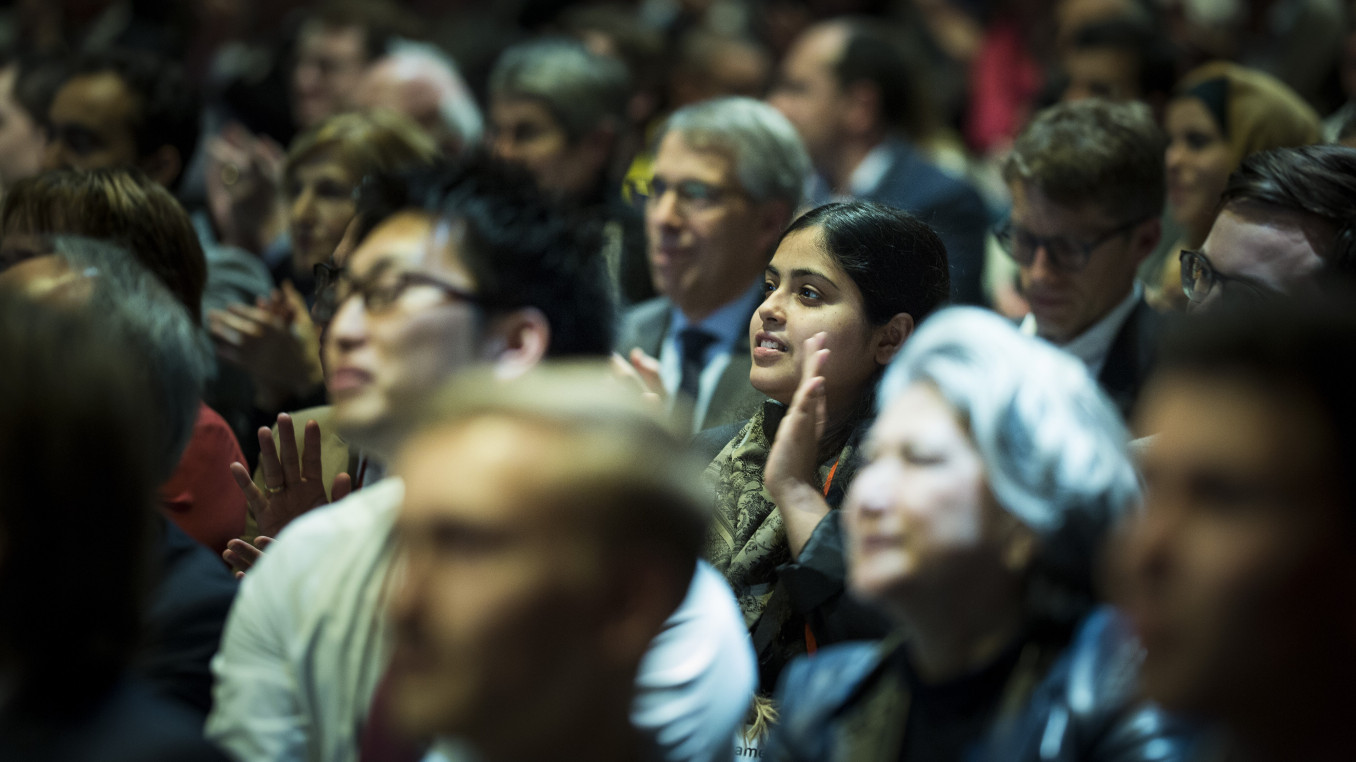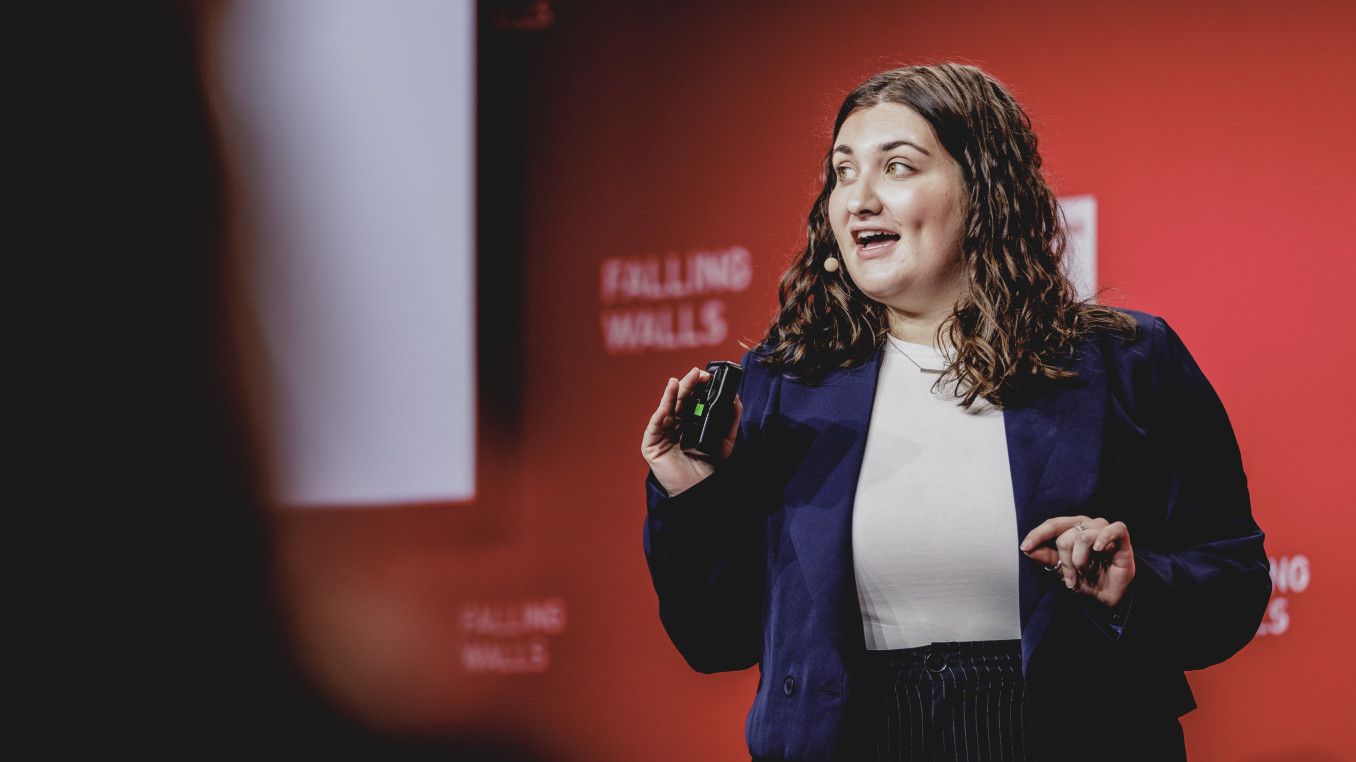Breaking the Wall of Misguided Social Norms
Breaking the Wall of Misguided Social Norms
Global Call 2025 Finalist Interview: Social Sciences & Humanities
Andreas Pondorfer combines insights from the social and behavioural sciences to study the origins and diversity of human behaviour. His research advances understanding of how social norms shape climate change action and gender equality, highlighting their importance for achieving global sustainability goals. He holds a PhD from Kiel, was a postdoc in Bonn, visiting scholar at Harvard and is now Professor of Sustainable Economic Policy at TUM.
Which wall does your research or project break?
Climate change is humanity’s greatest challenge, yet despite widespread concern real action lags behind what is needed. A hidden barrier to collective climate action lies in misperceived social norms. People often wrongly believe that their neighbours, colleagues or fellow citizens care less about climate change than they actually do. This pluralistic ignorance creates a silent wall that suppresses both individual climate-friendly behaviour and political support for ambitious policies.
Current approaches to understanding public attitudes treat countries as uniform blocks, ignoring that norms and behaviours can vary dramatically between regions within the same nation. This oversight prevents policymakers from seeing where collective momentum for change already exists and where misperceptions hold communities back.
My ERC-funded project breaks this wall by unveiling the hidden regional patterns of social norms around climate change and creating methods to correct misperceptions locally. We conduct large-scale, regionally representative surveys and innovative field experiments to measure not only what people think, but what they believe others think. This distinction is crucial because social norms—what is seen as typical and socially approved—strongly guide behaviour.
By mapping these norms at a fine-grained regional level and testing interventions that realign perceptions with reality, this research dismantles the psychological and informational barriers that fragment collective action. Breaking this wall allows communities to recognise their shared commitment to climate action, enabling stronger public support for policies and fostering bottom-up social change essential to tackling the climate crisis.
What is the main goal of your research or project?
The main goal of my research is to develop a science-based foundation for accelerating collective climate action by understanding and shaping social norms at the regional level.
To address climate change effectively, societies must mobilise broad public support for ambitious policies and encourage everyday climate-friendly behaviours. Yet regional differences in beliefs and cultural norms create pockets of resistance and misunderstanding, slowing down coordinated action. My research seeks to explain why these regional differences exist and how they influence both individual choices and societal support for climate policies.
The project aims to:
1. Map social norms and perceptions of climate policy support across subnational regions in Europe with unprecedented precision.
2. Understand the cultural, economic and social factors driving regional variation in climate beliefs and behaviours.
3. Design and test interventions that correct misperceptions of social norms—showing people that their communities are often more supportive of climate action than they assume.
This dual scientific and societal ambition means the project not only advances behavioural economics and social science but also provides policymakers with actionable tools. By tailoring communication and interventions to regional cultural contexts, governments and organisations can foster local engagement while building the broad, cross-regional consensus needed for effective climate governance.
Ultimately, this research seeks to empower individuals and communities to overcome psychological barriers to cooperation, unlocking collective climate action that aligns with our shared global sustainability goals.
What advice would you give to young scientists or students interested in pursuing a career in research, or to your younger self starting in science?
If I could give advice to young scientists or to my younger self, it would be this: follow your curiosity with patience and passion. Research is rarely a straight path—it is full of uncertainty, setbacks and unexpected turns. But if you stay true to the questions that genuinely fascinate you, and keep the long-term vision in mind, it will pay off both intellectually and personally.
Be open to other disciplines and perspectives. Many of the most exciting scientific advances happen at the intersections of fields. Some of my most valuable insights came from venturing beyond economics into psychology, anthropology and biology. Don’t hesitate to step outside your comfort zone, collaborate widely and learn from different ways of thinking. Equally important is cultivating the ability to change perspectives—even your own. Good research requires the humility to question assumptions, adapt methods and accept that the data may challenge your initial beliefs.
Finally, never lose sight of what truly matters outside of science. Family, friends and personal well-being should always come first. It’s easy to get consumed by research, but a fulfilling life beyond academia makes you a better, more balanced scientist. Creativity and resilience thrive when you have strong personal connections and the space to step back and recharge.
Science is a journey of discovery—not just of the world, but of yourself. Approach it with curiosity, openness and integrity, and you will not only contribute to knowledge but also build a meaningful life along the way.
What inspired you to be in the profession you are today?
I was inspired by the fact that most behavioural and economic science findings are based on WEIRD (Western, Educated, Industrialised, Rich and Democratic) societies, representing only a narrow slice of humanity. I wanted to uncover the origins of these behavioural variations across different regions and cultures.
What impact does your research or project have on society?
My research helps design climate policies that resonate with local cultural norms, correcting misperceptions about others’ willingness to act. This empowers communities to take collective climate action, strengthening public support for global sustainability goals.
What is one surprising fact about your research or project that people might not know?
A surprising fact is how much human behaviour and policy support can vary within the same country. This regional diversity is often overlooked, making national policy design far more challenging than commonly assumed.
What’s the most exciting moment you've experienced over the course of your research or project?
One of the most exciting moments was discovering that people adjust their behaviour more to align with distant others than with close ones when converging to local social norms. This unexpected finding challenges common assumptions about social influence and cooperation.

